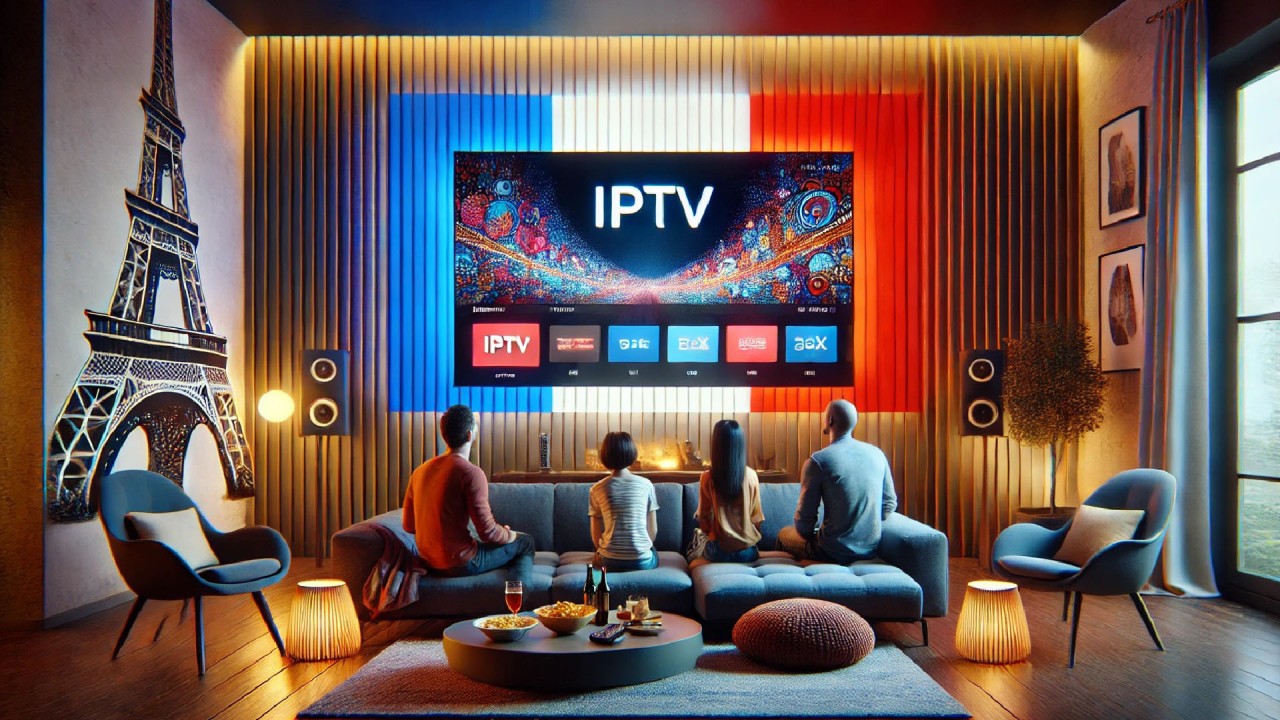In recent years, IPTV (Internet Protocol Television) has emerged as a game-changer in the way we consume television content. This trend is particularly evident in France, where IPTV services have gained substantial traction, offering viewers an alternative to traditional cable and satellite services. With the rise of internet speeds, improved technology, and increasing demand for on-demand content, IPTV is reshaping the French media landscape. In this article, we’ll explore the growing popularity of iptv france, the benefits it offers, and the top providers that are making waves in the market.
What is IPTV?
IPTV, or Internet Protocol Television, is a digital television service delivered through an internet connection, rather than via traditional satellite or cable signals. Instead of using satellite dishes or coaxial cables, IPTV relies on high-speed internet to stream television channels and video content. The service can be accessed through various devices, including smart TVs, set-top boxes, laptops, tablets, and smartphones, making it a flexible and convenient choice for viewers.
Unlike traditional TV services, IPTV allows users to access both live broadcasts and on-demand content, including movies, TV shows, and documentaries, through an internet-enabled device. The growing use of IPTV in France has disrupted the conventional television market, making traditional cable services seem outdated for many users.
Why is IPTV Popular in France?
-
Flexibility and Convenience: One of the primary reasons IPTV has gained popularity in France is its flexibility. With IPTV, users can access a wide range of channels, including local, national, and international content. Subscribers are no longer tied to specific time slots for their favorite shows. They can watch content whenever they want, thanks to the on-demand nature of IPTV services.
-
Affordable Pricing: Compared to traditional cable and satellite television services, IPTV offers a more affordable solution. In France, many IPTV providers offer cost-effective packages, often with no long-term contracts, making it an attractive option for consumers seeking to cut down on their entertainment expenses.
-
Customization and Personalization: IPTV services often come with user-friendly interfaces, allowing viewers to personalize their content libraries and create custom playlists. Some providers also offer features such as parental controls, multiple device access, and the ability to record content for later viewing. This level of customization makes IPTV appealing to both individual viewers and families.
-
High-Quality Streaming: With the rise of fiber-optic internet connections, French users now enjoy high-definition (HD) and even 4K streaming with minimal buffering. IPTV offers a superior viewing experience compared to traditional television formats, especially when it comes to image clarity and streaming reliability.
-
Access to International Content: IPTV services allow French viewers to access a wide range of international content, including English-language programs, news channels, sports events, and foreign films. This is particularly important in a multicultural country like France, where people from various countries enjoy programming in their native languages.
Leading IPTV Providers in France
The French IPTV market is home to several prominent service providers, each offering a variety of features tailored to meet the needs of different users. Some of the leading IPTV providers in France include:
-
Orange TV: As one of the largest telecommunications companies in France, Orange offers an extensive IPTV service known as Orange TV. The service delivers a wide selection of channels, on-demand content, and interactive features, such as catch-up TV. Orange TV is available to both fiber and ADSL internet subscribers, with the option to include additional services like internet and phone bundles.
-
SFR TV: SFR is another major telecommunications provider in France, and it offers an IPTV service called SFR TV. SFR TV provides a variety of live TV channels, on-demand movies, and series, along with exclusive sports content. The service is available to both SFR internet and mobile subscribers, and it also includes advanced features like multi-screen access and a user-friendly interface.
-
Freebox TV: Freebox TV, offered by the French telecom company Free, is one of the most affordable IPTV options on the market. Freebox TV provides users with a large number of TV channels, including international networks. It also features an extensive on-demand content library, offering movies, TV shows, and documentaries.
-
Bouygues Telecom – Bbox TV: Bouygues Telecom provides IPTV through its Bbox TV service. Bbox TV offers users a rich array of channels, VOD (Video on Demand), and catch-up TV, along with access to streaming platforms like Netflix and YouTube. The service includes an intuitive interface and customizable settings for a more personalized viewing experience.
-
MyCanal: MyCanal is an IPTV platform provided by the French Canal+ Group. It offers both live and on-demand content, including Canal+ channels, French and international TV programs, movies, and sports events. MyCanal can be accessed via a variety of devices, including smartphones, tablets, and smart TVs, and is popular for its live sports broadcasts, including top football leagues and tennis tournaments.
Legal Aspects of IPTV in France
It’s important to note that not all IPTV services in France are legal. The country has a robust regulatory framework that governs broadcasting and content distribution. Many illegal IPTV providers offer pirated content without proper licensing, which is against the law. To avoid issues, it’s crucial to use legal IPTV services offered by recognized providers like Orange, SFR, Free, and Bouygues Telecom.
Future of IPTV in France
The future of IPTV in France looks promising. With the continued expansion of high-speed internet infrastructure, particularly fiber-optic networks, IPTV services are expected to become even more prevalent in the coming years. The shift toward streaming platforms and internet-based content delivery means that more traditional broadcast models will face competition.
Furthermore, advancements in technology, including artificial intelligence and personalized content algorithms, will likely further enhance the IPTV experience. We can expect more interactive features, better user interfaces, and even more extensive content libraries as the market continues to evolve.

